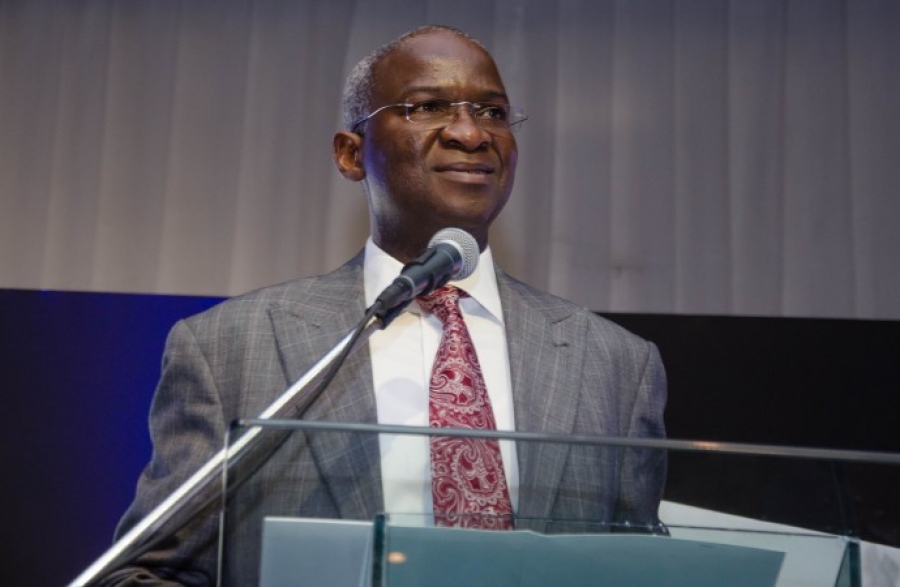- Power Firms Owe Consumers Explanation for Estimated Billing
The Minister of Power, Works and Housing, Mr. Babatunde Fashola, has said that the power distribution firms should explain to consumers the basis for estimated billing, which they subject them (consumers) to and when it will end.
Fashola, who stated this on Monday at the 12th Monthly Power Sector and Stakeholders’ Meeting in Ibadan, hosted by the Ibadan Electricity Distribution Company, however, said rapid provision of prepaid meters would help to cement consumers’ trust.
He stressed the need for the firms to build confidence and trust between them and the consumers by communicating the steps being taken to improve service delivery.
“Consumers still feel that they are getting the wrong end of the stick with the estimated billing method. While the deployment of meters must go on at a very rapid and aggressive pace, Discos also owe an explanation to consumers on the basis of the billing where they are estimated, and explain when it will end,” the minister said.
He said, sometimes, the explanation would help people react more positively, but described the provision of meters as the solution.
“So, I continue to stand on the side of consumers; they have a right to have meters and the Discos have an obligation to deliver them whatever it takes. This is the business they signed up to and we will support them to do this,” the minister added.
Power generation in the country has worsened in recent weeks after hitting the 4,000 megawatts mark in December last year, with many consumers without prepaid meters complaining about over-billing despite the dip in supply.
Commenting on the problems in the power sector, the minister said sabotage of gas assets and pipelines had “decommissioned power plants and their ability to provide up to 3,000 megawatts of power.”
“The 3,500MW to 3,800MW that we have been able to keep on the grid over the last few months will be assisted greatly if we can have the gas pipelines back and add 3,000MW to it. That means we will be able to deliver well over 6,000MW if the gas pipelines are safe,” he added.
Fashola said the sabotage of facilities had also created debt and liquidity problems, shortfall in power expectation and in revenue recovery by power distribution firms.
He told the power investors and other stakeholders at the meeting, “Consumers are more resistant to payment when they don’t have electricity; I will be, too, and you will be too.
“We see that they (consumers) pay more when the power is more stable. Of course, there are issues also at the retail end, including metering and estimated bills.”
Meanwhile, the Federal Government on Monday issued a Friday, February 17, 2017 deadline to power distribution companies to submit their audited and management accounts.
It also directed the firms to make all submissions of debts owed them by its Ministries, Departments and Agencies on or before February 28.
The Nigerian Electricity Regulatory Commission and the Power ministry have on several occasions condemned the refusal of power distribution companies to submit their audited accounts since they took over the successor companies of the defunct Power Holding Company of Nigeria.
In November last year, the Minister of Power, Works and Housing, Babatunde Fashola, stated that in the past three years, the Discos had refused to submit their audited financial reports to NERC, adding that when the commission wanted to activate their contractual obligations as stipulated by law, the power firms dragged it to court and frustrated its efforts.
“Your advert should also have told the Nigerian public how many Discos have gone to court to frustrate the attempt by NERC to hold them to their contracts so that they can pay the Gencos, who have been sacrificing, and the gas producers, who have not received payment and who have continued to act patriotically,” Fashola had said.
To put an end to the delay by the Discos, the Federal Government came up with the deadlines and mandated the firms to comply.
The two directives were contained in a communique issued at the end of the 12th monthly meeting of operators in the power sector, which was chaired by Fashola and had the highest executive management staff of organisations in the industry in attendance.
The communique read in part, “The meeting also noted the steps taken to address the liquidity issues currently limiting the functioning of the sector through the work that is presently underway to identify, verify and pay MDAs’ debts to the Discos, as well as gas debts and generation debts.
“It was noted that Abuja, Ikeja, Ibadan and Yola Discos have complied with data requirements and verification of their submission is underway on a first come, first serve basis. A deadline of February 28, 2017 was issued to receive submissions on the MDAs’ debts from distribution companies, and February 17, 2017 was set as a deadline for the submission of audited and management accounts.”
The communique stated that participants at the meeting decried the negative impact caused by the sabotage of gas pipelines and that this had caused a severe limitation in power generation.


 Naira4 weeks ago
Naira4 weeks ago


 Naira4 weeks ago
Naira4 weeks ago


 Naira3 weeks ago
Naira3 weeks ago


 News4 weeks ago
News4 weeks ago
 Travel4 weeks ago
Travel4 weeks ago




 Naira3 weeks ago
Naira3 weeks ago


 Jobs3 weeks ago
Jobs3 weeks ago
 Naira3 weeks ago
Naira3 weeks ago





















